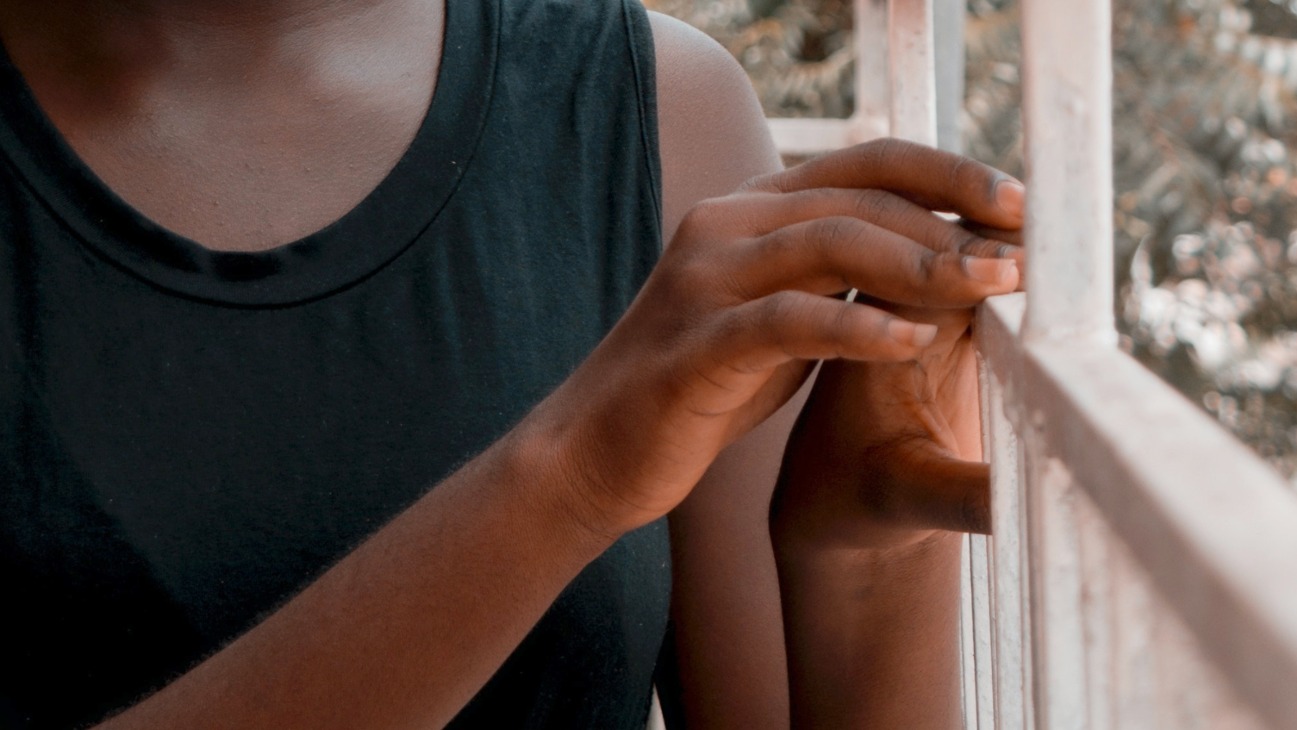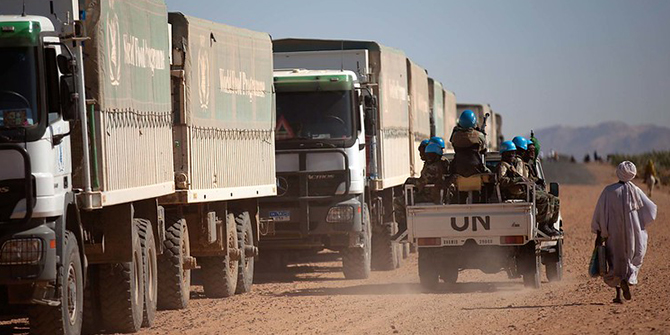In April 2019 researchers at LSE held a blog training workshop where only one person out of 25 attended. The empty chairs were for African nationals invited to attend a range of academic events, all failing to receive their visas from the UK Home Office. The workshop organisers describe the visa system’s global asymmetries, and the damage it causes.
Esther Yei-Mokuwa (a health researcher attending various Ebola-related seminars)
We all need protection from infectious diseases – even Britain. Knowing how to prevent their spread is a scientific challenge, so scientists need to come together to pool their information. That requires international travel, but Britain is frustrating this work by refusing visas to scientists, especially those from Africa.
Last month an international team of researchers was due to meet in the UK to discuss their data and to plan preparedness for future pandemics. African Researchers involved in two projects on epidemics were denied visas. At the time of writing, this is every single African citizen who made the visa request. These applicants paid the initial fees before they were denied, despite extensive documentations from their institutions.
UK visa refusals have begun to ring alarm bells in the British Parliament. Earlier this year the All Party Parliamentary Group for Africa organised meetings to hear evidence on UK visa refusals affecting African visitors. It turns out that African visitors are twice as likely to be refused visas as visitors from other parts of the world. The shocked parliamentarians are now calling for an investigation into the visa process.
The committee reported a number of failings. Application procedures are very unclear. Applicants are often refused based on alleged lack of information. But this information is at times irrelevant or not even requested in the application guidance. Examples include demands for evidence of previous travel, where the applicant may not be able to locate an old passport, unreasonable requests for financial guarantees, and arbitrary rejection of letters of support from sponsoring organisations. In addition, there is lack of guidance of how to apply and what is required for a successful application. There is no right of appeal against refusal of UK visas and no refund of fees.
The whole visa issue is opaque and unfair. Some are questioning whether the denial of visas to UK events could be tied to Brexit, perhaps motivated by strong anti-immigrant feelings.
Carolin Dieterle (a PhD Student at the LSE Department of International Development)
As a German frequent traveller, I have never been denied a visa. Neither have any of my German family, friends or acquaintances. I recently went to the Sierra Leone High Commission in London to request a six-months multiple entry visa for upcoming fieldwork. The immigration officer briefly glanced at my documents, asked me to confirm my nationality, and then told me to return the next day. I got my visa in less than 24 hours.
Around the same time, numerous Sierra Leonean academics invited to various conferences at the LSE were denied a visa and could not participate. After waiting for weeks or months, they were not even given an explanation for this refusal.
Passing worry-free through airport controls, I am often unaware of the privilege that comes with my passport. But this small worn-out 3×5 inch booklet carries enormous weight and reflects my country’s geopolitical status. As a German national, I am granted visa-free access or easily receive a visa upon arrival in 167 countries in the world, according to the Global Passport Index. This is similar to passports from Luxembourg, Finland and Spain, and only surpassed by the United Arab Emirates passport, which enjoys visa-free (or visa-upon-arrival) access to 169 countries.
Most African passports fall far below this bar, with visa-free access to no more than 40 to 50 countries worldwide. The high costs of many visa applications means that my travels are not only easier but much cheaper than theirs.
Elizabeth Storer (a PhD Student at the LSE Department of International Development)
Eventually, some of those who applied for the visa received them, but only after the events they had been invited far in advance to attend. This is yet another example of African scholars being consistently refused access – or faced with significant obstacles – to share their research and participate in conversations about their home countries. Conversations about international development thus lack important perspectives and insights; European scholars evade important critiques from citizens of the countries they study.
In 2016, the organisers of the biannual African Studies Association conference publicly recognised this problem. The ASA committee called for a wider commitment to gather evidence of this nature. The committee recognised that the problem in part results from logistical and practical issues. For instance, there are only three hubs for processing UK visas in the continent – one in Pretoria (which serves southern, central and Eastern Africa), and two in Nigeria for western Africa. Three hubs thus serve a continent of 54 countries and 1.3 billion.
Moreover, since visa processing occurs outside of many national contexts – on what expertise are decisions made? There is a lack of transparency around who is presented with a UK visa and who is refused. This raises deep questions about accountability of processing decisions at these hubs.
Esther Yei-Mokuwa summarises:
My message to the UK? The discrimination against the African continent must stop. Britain and Africa together have a history of collaboration, including in the battle against infectious diseases. Let us remove the ‘infection’ of racism from the visa process so we can continue the challenge of pandemic preparedness together.
Photo credit: Andriy Popov
The views expressed in this post are those of the author and in no way reflect those of the Africa at LSE blog, the Firoz Lalji Centre for Africa or the London School of Economics and Political Science.






Thanks so much for highlighting this issue.
In 2018, I wrote the following reflection at a time when I was preparing to file my third visa application for that year for work related travel.
I can’t help but wonder whether many Western countries have arduous visa application processes because they intend to limit the number of (perhaps undesirable) visitors from Africa, they are seeking to raise revenues through sometimes exorbitant costs, to provide employment for citizens working in their embassies by ensuring they have mountains of documents to peruse through, or are simply oblivious of the frustrating process of having to get a visa, and in a sense, oblivious to how holding to someone’s passport for weeks, denies said person’s access to a vital document. And, to be fair, I often wonder whether diplomatic staff from African countries bother to negotiate for less arduous visa applications for their citizens.
My first visa application in 2018r cost me well over 1000 US dollars because I had a limited time to apply for the visa and had to pay extra fees for expediting the visa application and for securing an appointment outside official business hours, and, because I want to limit the number of times I have to go through what is a time consuming, expensive process, I paid extra for a long-term, multiple entry visa. Oh, and yes, because an increasing number of foreign embassies are now using third party visa processing offices, I had to pay the additional fee charged by the third-party office. Also factor in transport costs to the embassy or visa processing center, which can be substantial if you don’t live close to the embassy (I will add here that most embassies do not provide parking for visa applicants, so even if you can drive your own car it is best to take a taxi)
The fees are one thing, the required documentation and application times are another challenge all together. Take the typical requirements for a Schengen visa
Application form
Original passport + copy of all relevant pages (ID page)
Copy of all visas issued in the last three years (woe unto you if you are a frequent traveller because this means you might have to photocopy your entire passport although you also have to submit the original passport)
Individual travel medical insurance
Photocopy of the national ID card (both sides)
Proof of payment of the visa application fee
Proof of sufficient financial means
Original applicant’s bank account statement for the past 3 months is required
Salary payslips
Official invitation form from the host person or original document(s) proving the purpose of travel
For employed persons: signed letter from current employer containing following information:
applicant’s personal data, function/profession
terms of employment (temporary/permanent)
date of employment
Annual salary
Flight booking
Getting the documents together is an arduous task. One needs to factor in a full day of work filling out the application form, scanning documents, travelling to the bank to get signed bank statements (because even electronic statements must be stamped), and following up with the human resources person at work to get letter that verifies that you are employed, have permission to travel, and have a decent salary (I suppose). For some embassies, you then have to book an appointment to submit the documents (often dangerously close to the travel dates) and at which point you hand over said documents, which includes your passport, and then you wait to know whether your application is successful or not. Now the wait times vary considerably, but most embassies will indicate a processing time of 10 to 15 working days–days when you will not have a passport!!
Work-related travel can often be unpredictable in terms of timing and sometimes one has back-to-back travels. Juggling multiple visa applications with the turnaround times for processing these visas can be taxing. Yes, turning down invitations to participate in meetings is an option but what if frequent travel is part and parcel of one’s job.
Does reciprocity mean anything? Majority of visitors to Kenya can file and pay for an electronic visa from the comfort of their home and are only required to upload the following documents
Clear passport bio data page for all visitors
A clear photograph for all visitors
Additional documents for business visits are an invitation letter from the company one is visiting and a copy of the company’s registration of the company. Those visiting family are required to submit an invitation letter from the family member and the host’s ID, while those who are visiting the country for tourism need to provide a travel itinerary and hotel bookings.
I really do not have a problem with countries vetting those who desire to visit their countries, I think this is well within their rights. However, in these days of frequent travels, countries should seek ways to streamline the process for ALL. Why can’t one scan and upload said documents for verification and an electronic visa issued (kudos, Australia!)? Why do people from the south have to go through such arduous processes? Is this just institutionalized racism? It is right for another country to hold onto the passport of another country’s citizen? Just questions I repeatedly ask myself
Worderful article
It is high time African scholars had their own academic forums to discuss issues that affect them
I totally agree with Philip. Why waste time and money on countries who apply institutionalized racism on African professionals and scientists? Maybe the right to do is just not show up at this events and not even bother investing energy on them and rather organize them in African countries and let the others do the paperwork and the travel. It’s about time we stop playing the fool.